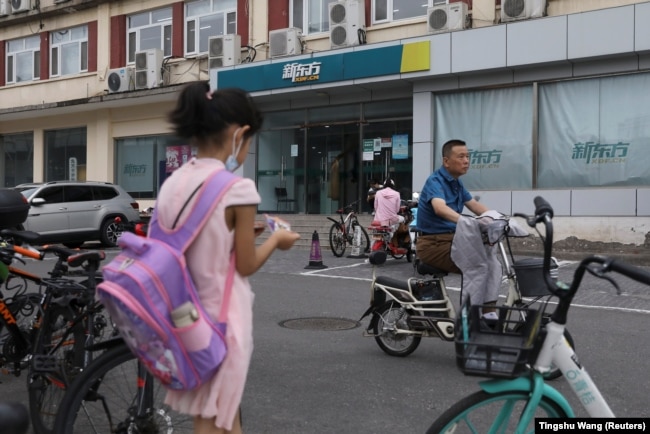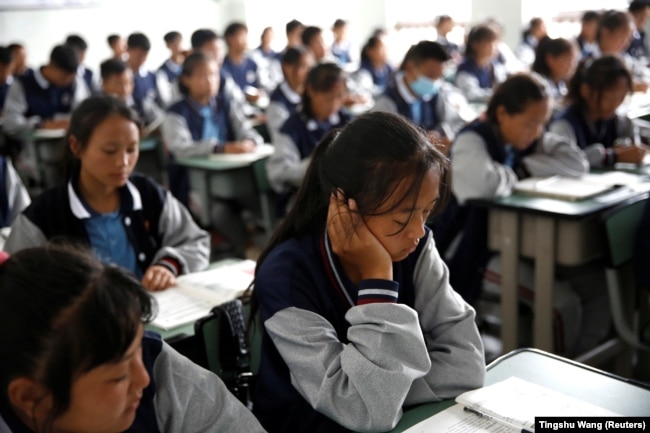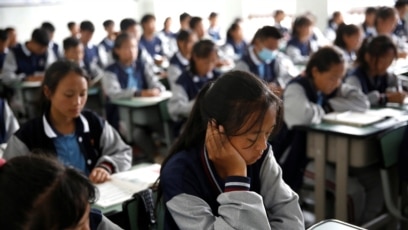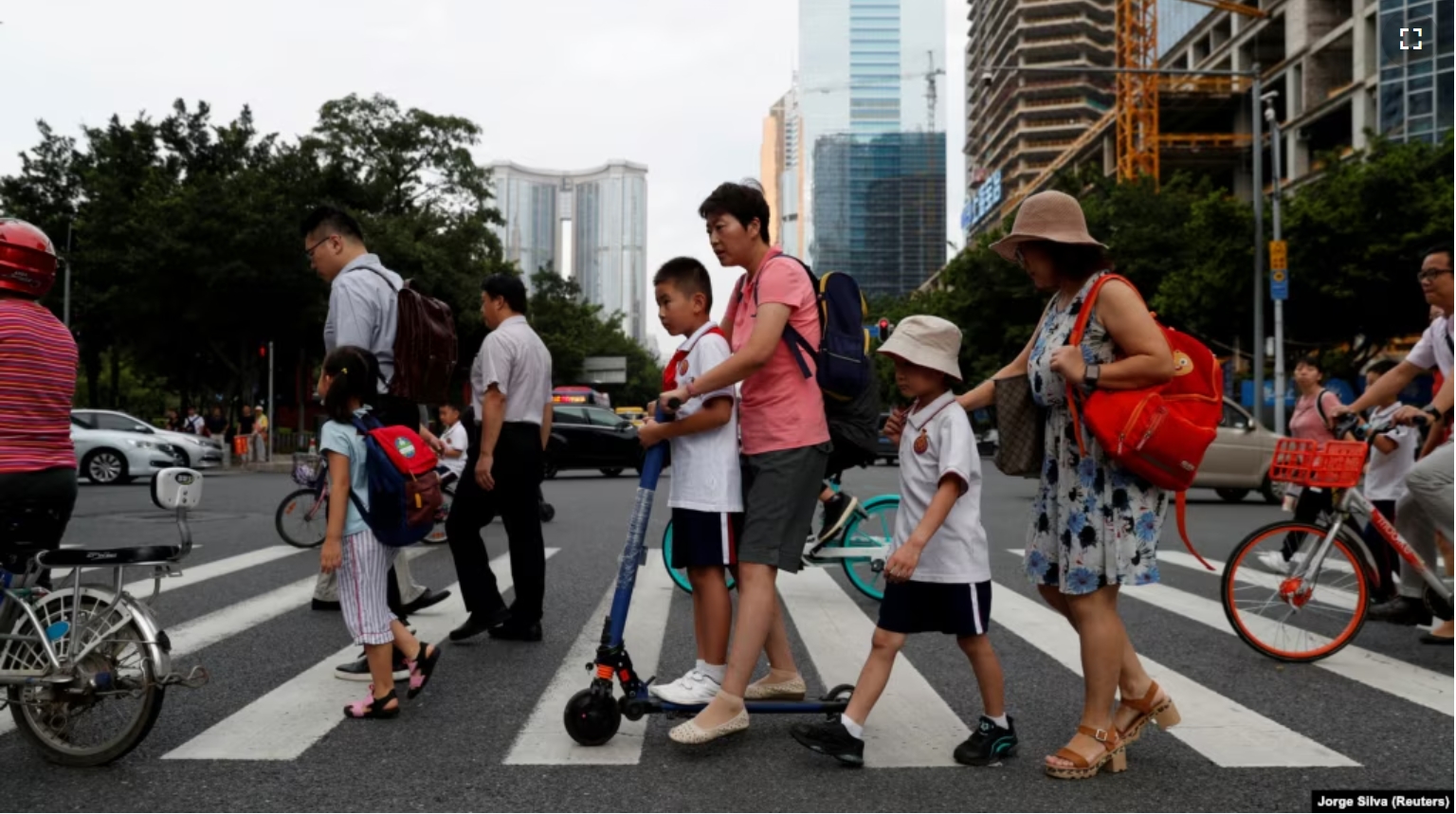China is quietly easing regulations on private education companies as the government aims to support a slowing economy.
Government officials have not announced a policy change. But news reports say policymakers are now permitting the tutoring industry to grow. Industry experts say the new efforts aim to support job creation.
Reuters News Agency recently spoke with people in the industry, parents in China and others. Here is what Reuters reported:
Starting in 2021, the government prohibited for-profit tutoring in main school subjects such as math and English. The reported aim was to reduce financial pressure on families. It was also meant to create equal educational chances for both rich and poor families and to eliminate poor quality tutoring services.
The policy was known as the “double reduction.”
The crackdown cost the industry billions of dollars. It affected companies like New Oriental Education & Technology Group and TAL Education Group. It also led to tens of thousands of job losses.

Before the policy change, China’s for-profit tutoring industry was valued at about $100 billion. The three biggest companies employed over 170,000 people.
During the crackdown, the industry did not disappear as parents continued to seek tutoring services for their children. Many Chinese parents consider after-school tutoring services as a way for their children to gain an advantage in China’s competitive education system.
Michelle Lee is a parent based in southern China. Lee spends about $420 a month on after-school classes for her son and daughter. These classes include mathematics tutoring and online lessons in English. She told Reuters that in recent months tutoring schools had been operating more openly.
After the government crackdown in 2021, the number of tutoring centers and the number of teachers employed by them fell. The industry is now coming back as policies ease.
The research company Plenum China said that active licenses for for-profit tutoring centers rose 11.4 percent between January and June.
Liu Xiya is a delegate to China’s legislature and president of an education group based in the southwestern city of Chongqing. Liu told local media at a press conference in March that the government was dealing with problems in education policy.
Lynn Song is an economist at ING. He said China was unlikely to admit that the crackdown “was a little too forceful” but that regulations would be loosened. He said, “The overall policy environment has changed from restrictive to supportive as the main goal now is stabilization.”
A changing environment
Two business leaders who deal with government regulations at large tutoring companies recently spoke with Reuters. They said government moves to ease the crackdown had sped up in recent months.
They noted a decision in August by the State Council, China’s cabinet, to include education services in a 20-point plan to increase spending. This policy goal comes as more than 11 million university graduates entered China’s employment market. It also appeared to increase the stock value of publicly traded education companies.
The decision in August followed guidelines from China’s education ministry in February. These guidelines explained what kinds of after-school tutoring would now be permitted. Last year, the ministry published online a list of companies approved to provide tutoring in subjects that were not considered basic, or core subjects.
To get around the rules, tutoring centers would often rename classes. For example, math classes were commonly called “logical thinking” classes.

A woman who ran an English tutoring school in the eastern province of Zhejiang said she laid off 60 percent of her workers following the crackdown. Lisa did not want to give her full name to Reuters. But she said the school continued to teach science-related courses in English, without calling them English classes.
Also, one-on-one tutoring did very well during the crackdown. Parents who could afford it paid for tutors to come to their homes. Some parents said this increases an academic gap, where students from rich families do better in school than poor families.
That worries parents like Yang Zengdong, a Shanghai-based mother of two. She said the policy presented families with the hard choice: either pay up to $112 per class for a private tutor or spend hours each day teaching the children themselves.
She said that if this continues, “…the academic gap between rich people and everyone else will get worse.”
Yang said, “That wasn’t what the policy was meant to do, but that’s the reality, so of course it needs to change.”
I’m Anna Matteo. And I’m Mario Ritter Jr.
Casey Hall, Laurie Chen reported from Beijing, with additional reporting by Ellen Zhang from Shanghai for Reuters News Agency. Anna Matteo adapted it for VOA Learning English.
Quiz – China Eases Pressure on Private Teaching Companies

Start the Quiz to find out
_____________________________________________
Words in This Story
tutoring –n. for a student to receive additional teacher from a qualified person in addition to their normal schooling usually to help them with a subject they are having difficulty with
prohibited –adj. something that is not permitted or is barred by law
eliminate –v. to remove, take a way or end
crackdown –n. a government campaign against something aiming to change behavior or stop an activity or movement
advantage –n. something that helps a person or group in a situation where they are being judged competitively
license –n. an official document giving a person or group permission to do business, operate equipment or do some activity that is overseen by a local or national government
stabilization –n. the process of limiting changes and bringing things to a normal state
afford –v. to be able to pay for or endure something
academic gap –n. an imbalance that exists in something related to schooling
